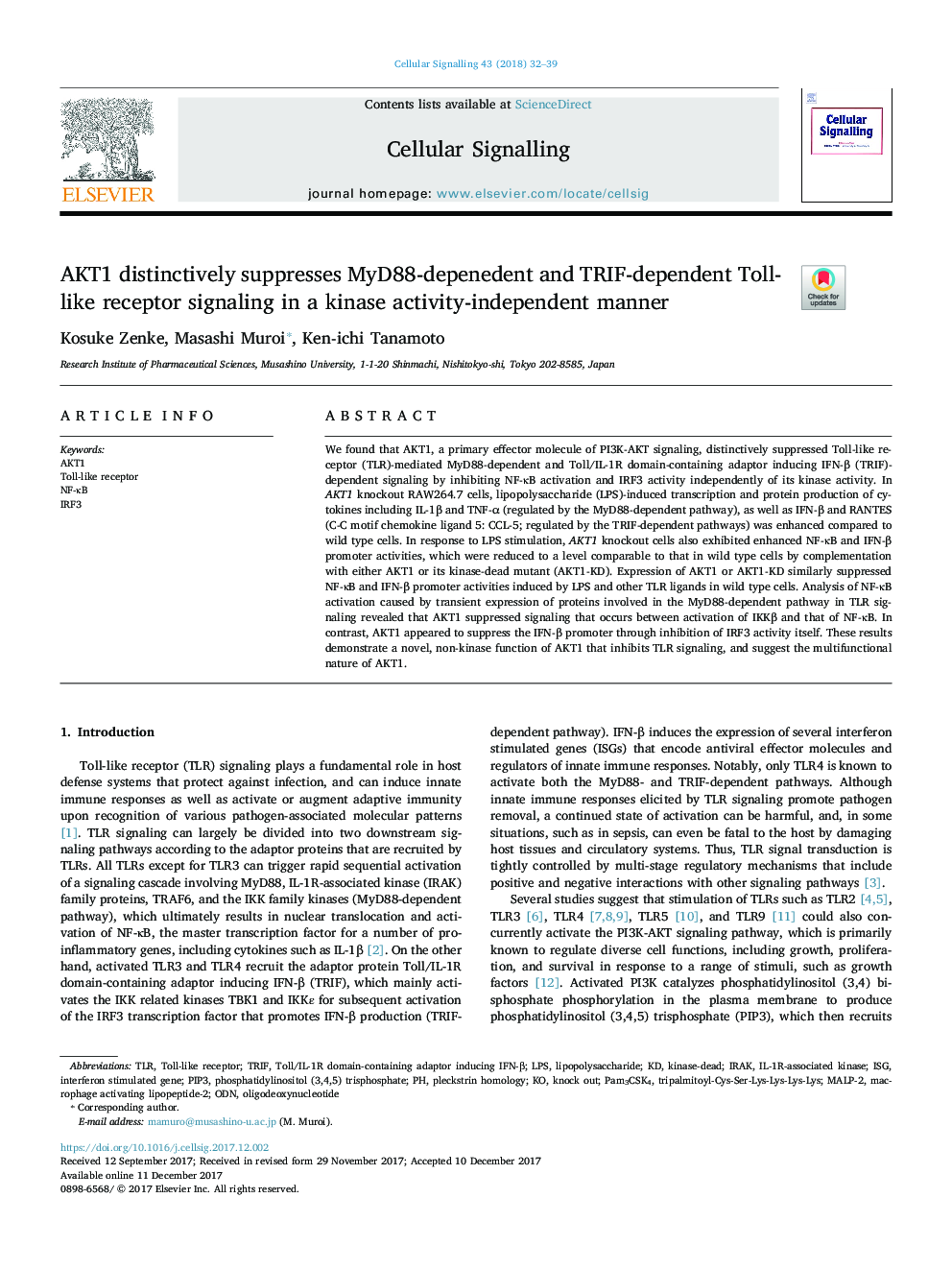| Article ID | Journal | Published Year | Pages | File Type |
|---|---|---|---|---|
| 8308957 | Cellular Signalling | 2018 | 8 Pages |
Abstract
We found that AKT1, a primary effector molecule of PI3K-AKT signaling, distinctively suppressed Toll-like receptor (TLR)-mediated MyD88-dependent and Toll/IL-1R domain-containing adaptor inducing IFN-β (TRIF)-dependent signaling by inhibiting NF-κB activation and IRF3 activity independently of its kinase activity. In AKT1 knockout RAW264.7 cells, lipopolysaccharide (LPS)-induced transcription and protein production of cytokines including IL-1β and TNF-α (regulated by the MyD88-dependent pathway), as well as IFN-β and RANTES (C-C motif chemokine ligand 5: CCL-5; regulated by the TRIF-dependent pathways) was enhanced compared to wild type cells. In response to LPS stimulation, AKT1 knockout cells also exhibited enhanced NF-κB and IFN-β promoter activities, which were reduced to a level comparable to that in wild type cells by complementation with either AKT1 or its kinase-dead mutant (AKT1-KD). Expression of AKT1 or AKT1-KD similarly suppressed NF-κB and IFN-β promoter activities induced by LPS and other TLR ligands in wild type cells. Analysis of NF-κB activation caused by transient expression of proteins involved in the MyD88-dependent pathway in TLR signaling revealed that AKT1 suppressed signaling that occurs between activation of IKKβ and that of NF-κB. In contrast, AKT1 appeared to suppress the IFN-β promoter through inhibition of IRF3 activity itself. These results demonstrate a novel, non-kinase function of AKT1 that inhibits TLR signaling, and suggest the multifunctional nature of AKT1.
Keywords
Related Topics
Life Sciences
Biochemistry, Genetics and Molecular Biology
Biochemistry
Authors
Kosuke Zenke, Masashi Muroi, Ken-ichi Tanamoto,
